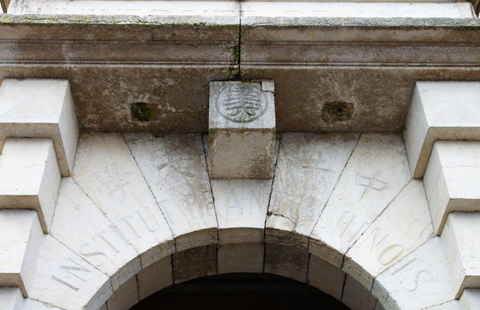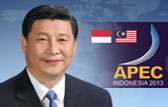
A logical choice for investment
Updated: 2014-03-29 03:00
By ZHANG CHUNYAN in Duesseldorf, Germany (China Daily)
Comments Print Mail Large Medium SmallGerman region expresses confidence in attracting more Chinese funds
Though several nations in Europe are rolling out the red carpet for Chinese firms, the North Rhine-Westphalia region in Germany is banking on its inherent strengths to attract more investment.
North Rhine-Westphalia expects to use Chinese President Xi Jinping's visit to Duisburg and the strong connection it has with some Chinese companies to channel more high-tech investment, say provincial officials.
Located in the heart of Europe and bordering the Netherlands and Belgium, the NRW is the most developed and densely populated of the 16 federal states in Germany.
According to official figures, NRW accounted for 22 percent, or 582.1 billion euros of German GDP in 2012. Internationally, NRW occupies 18th place in the world, ahead of Turkey, and generates 4.5 percent of the total European GDP.
More important, it is also the top investment destination for Chinese companies in Europe. There are about 800 Chinese companies in NRW now, compared with just 100 in 2003, said Petra Wassner, CEO of North Rhine-Westphalia Invest, the economic development agency of the NRW.
Along with small and medium-sized Chinese enterprises from all kinds of industries, there are also big players like Hisense, Huawei, ZTE, Lenovo, Minmetals, Sany, Wuhan Iron and Steel Corp and construction machine manufacturing giant Xuzhou Construction Machinery Group.
Many of these Chinese enterprises are setting up manufacturing bases and R&D centers, Wassner says.
"Last year was kind of a boom, with 63 new Chinese companies setting up shop. A lot of them started slowly in Europe but have since expanded quickly."
When it comes to the reasons behind such achievements, she said, "NRW offers many favorable business factors to Chinese companies" besides its good location and excellent infrastructure for transport.
A good aviation, road, rail and waterway network ensures effective connections all over the world. She said that Duisburg, which handles more than 125 million tons of goods a year, is also the world's largest inland port.
Starting in Chongqing, the Chongqing-Xinjiang-Europe International Railway passes through Xi'an, Lanzhou, Urumqi and the Alataw Pass, where it enters Kazakhstan, before continuing through Russia, Belarus and Poland, finally ending in Duisburg.
Stretching 11,179 kilometers, it takes just 16 days on average to transport goods from China to Europe by rail, 20 days fewer than by sea from China's eastern ports, making the rail link ideal for goods with shorter shelf lives.
"NRW is a big logistics hub for Chinese companies, and it is important that Chinese companies have access to the huge German and European market," Wassner said.
What's more, she said, "We have more than 14,000 foreign companies here, which are potential partners for a lot of Chinese businesses. And 17 of the 50 largest German companies, like Bayer, Deutsche Post DHL and Deutsche Telekom, are also based here."
NRW's economy is strong in sectors like chemicals, heavy machinery, automotive components, steel and metals and high-tech clusters, such as micro-tech, bio-tech and medical technology, she said. Most of the recent Chinese merger and acquisition activities, Wassner said, have taken place in sectors such as heavy industries and machines, energy and automotive
To attract more Chinese companies to set up their offices or branches, NRW has three representative offices in China — Beijing, Shanghai and Nanjing. It also has 14 full-time employees to provide various services for Chinese investors.
Philipp Neumann contributed to this story.






